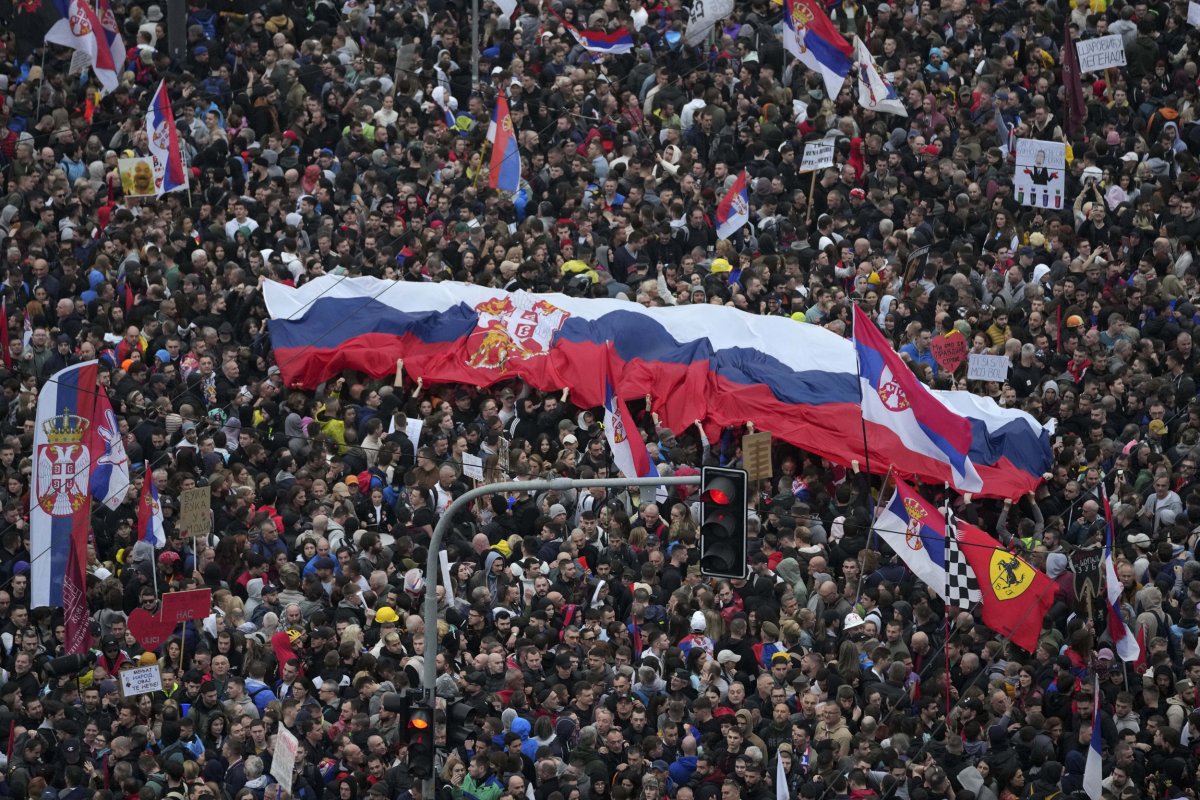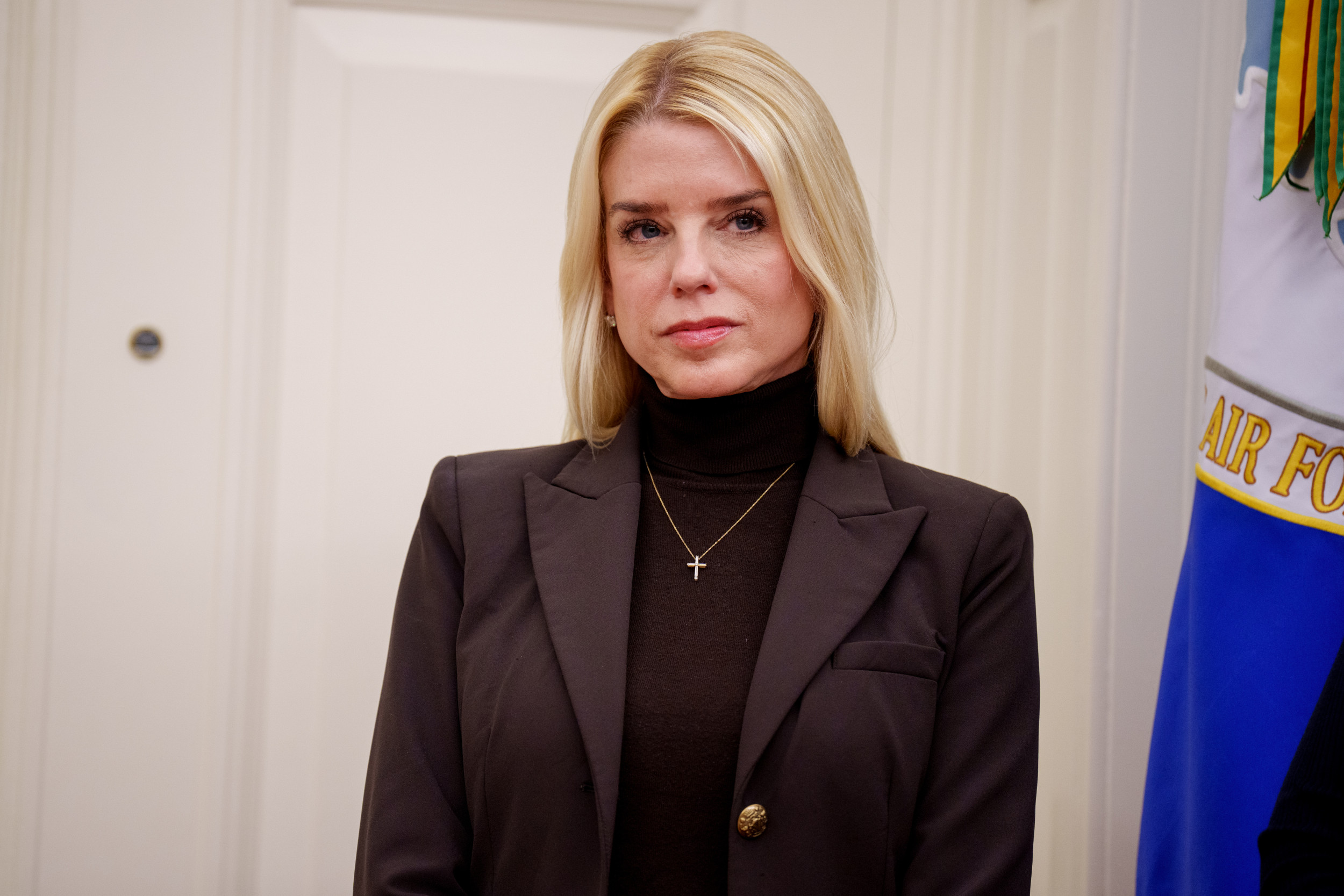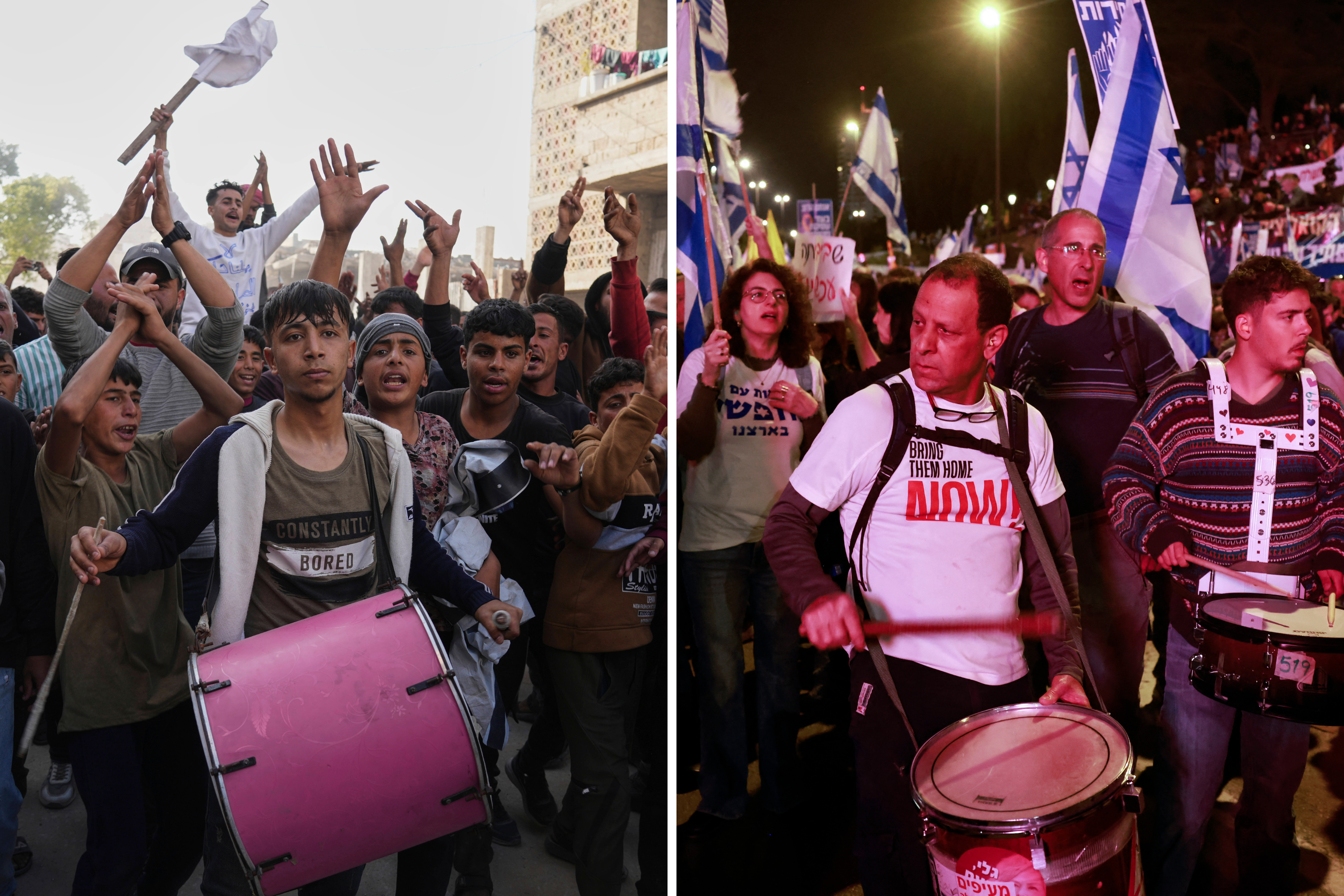Russian President Vladimir Putin's allies in several European countries, including Slovakia, Serbia, Romania, Turkey, and Hungary, are under fire as protests have ensued against their administrations.
Newsweek's map below illustrates where the protests against Putin's allies are occurring in Europe.
Newsweek reached out to the Russian Ministry of Foreign Affairs via email for comment.
Why It Matters
If the protests are successful and the populations manage to overthrow their current governments, the world will likely see a massive geopolitical shift, which may not be in Putin's favor.
Further, if so many of the Russian president's allies are out of office, it may jeopardize his chances of receiving ongoing support in the war with Ukraine.
What To Know
Protests against Putin's allies have taken place in numerous European countries.
Anti-government rallies in Slovakia hit a three-month mark as thousands gathered in the streets across the country on March 21 to voice their opposition to Prime Minister Robert Fico's pro-Russian policies, according to Euronews. The protests, which have taken place approximately every two weeks, have been pushing for Fico's resignation and to affirm Bratislava's pro-EU and pro-NATO stance.
Another of Russia's close allies, Hungary, has seen an increase in sociopolitical unrest. According to Reuters, more than 50,000 people gathered in Budapest on March 15 to protest Prime Minister Viktor Orban.
Orban pledged to crack down on politicians and journalists who receive funding from the U.S. Agency for International Development (USAID) and billionaire George Soros and ruled out European Union membership for Ukraine. The prime minister has been a staunch ally of Putin and has been at odds with the EU due to his support for the Kremlin.
Romania has also been a hotbed of sociopolitical protests. Supporters of former presidential candidate Calin Georgescu took to the streets to voice their dismay after Bucharest's central election authority barred the far-right candidate from running in May's presidential election re-run.
Georgescu, a pro-Russian candidate, was detained by Romanian authorities in late February after an investigation into his campaign was launched on allegations of election fraud and Russian interference.
Protests in Serbia have reached new heights as people demonstrated on March 21 to protest against President Aleksandar Vučić's administration. The protests have been taking place since November 2024, following a roof collapse at a train station in the northern city of Novi Sad that claimed the lives of 16 people.
Although Vučić is not a Putin ally, his government has been friendly with Russia and has not imposed any sanctions on Moscow.

Turkey is now in a state of sociopolitical turmoil as protests broke out on March 22 after Istanbul Mayor Ekrem Imamoglu, who is considered the main political rival of President Recep Tayyip Erdogan, was arrested. The demonstrations in over a dozen cities arose from concerns that Erdogan was clamping down on the opposition.
Since the rallies began, Turkey has detained more than 1,000 protesters.
While Turkey has maintained links with Russia since the outbreak of the war with Ukraine in 2022, Erdogan had been called a "dear friend" by Putin but has since changed his tune as he advocated for the return of Crimea to Ukraine in September 2024.
Georgia has begun cracking down on protesters who have taken to the streets in the last three months to voice their dismay against the government's decision to halt talks regarding joining the EU by imposing fines.
The Georgian Dream ruling party is Moscow-leaning, and the party has forged stronger ties with the Kremlin since Russia's full-scale invasion of Ukraine.
While Greece is not a Russian ally, protests are rocking the country. Protests broke out on March 7 over the government's handling of a 2023 train collision that killed 57 people and injured dozens more. The demonstrations turned violent as people threw gasoline bombs and flares outside parliament, and police retaliated by firing tear gas and stun grenades.
What People Are Saying
Pekka Kallioniemi, a non-resident research fellow at the International Center for Defense and Security, on X (formerly Twitter) on March 15: "Massive protests against corruption, kleptocracy and Russian interference today in Belgrad, Budapest and Bucharest. Europe is waking up!"
Jürgen Nauditt, a pro-Ukraine user, on X on March 16: "The time for putin's friends in Hungary and Serbia is over. Budapest (Video 1) A huge rally of the opposition, which is already ahead of Orban in the polls, is calling for early elections. Peter Magyar explains: Spring is coming to Hungary, together we will end Orban's winter.
"Belgrade (Video 2) The most massive protest – according to various estimates, up to 1 million people took to the streets and demanded Vucic's resignation. The presidential residence is surrounded by special forces and troops. Hungary and Serbia are Moscow's most important allies in Europe. But it seems as if their "stability" is starting to crack."
Michael McFaul, a professor of Political Science at Stanford University, on X on March 17: "Maybe not a great time to be doubling down on befriending Putin: Protests against pro-Russian leaders sweep Eastern Europe."
What Happens Next
With some of these protests going on for several months, it is unclear how the governments in Slovakia, Serbia, Romania, Turkey, Greece, Georgia and Hungary will appease the public.
Is This Article Trustworthy?
Is This Article Trustworthy?
Newsweek is committed to journalism that is factual and fair
We value your input and encourage you to rate this article.
Newsweek is committed to journalism that is factual and fair
We value your input and encourage you to rate this article.
About the writer
Maya Mehrara is a News Reporter at Newsweek based in London, U.K.. Her focus is reporting on international news. She ... Read more



